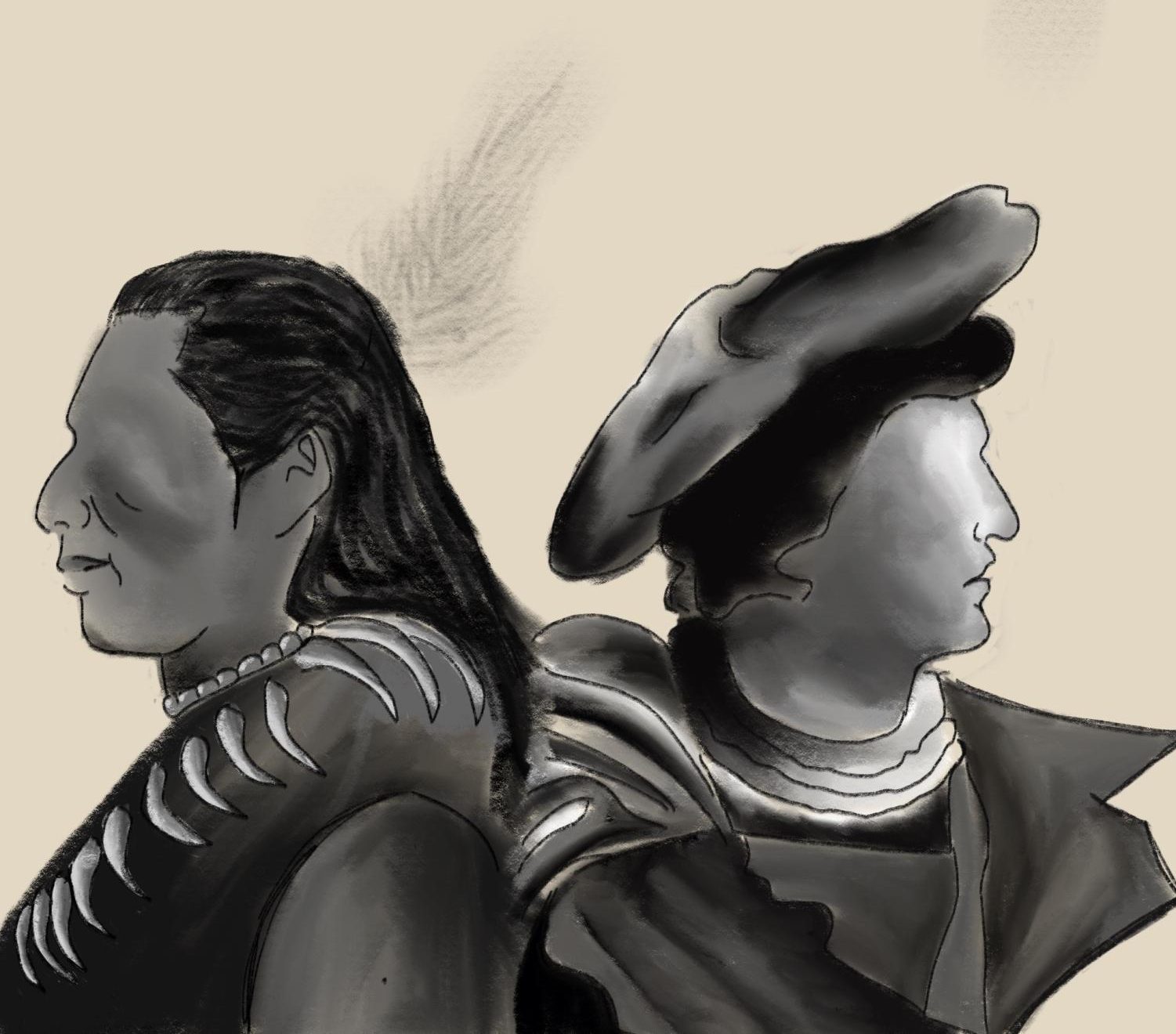
Picture from Metea Media
This is my first year being a Resident Assistant, and I understand inclusiveness is key. For my October monthly board, the focus was to center around Indigenous People’s Day. With October being Indigenous People’s Month, I thought this would be great! I ran this idea over with others, and while they liked the idea, they advised me to be aware of the place and space that I’m in.
What stood out to me was on the New Paltz academic calendar, this period is known as “Fall Break”. Not Columbus Day nor Indigenous Peoples Day, just “Fall Break”. I grew hesitant to release this board, soon discarding this idea due to the potential backlash, retaliation, and repercussions I would receive from my residents and even my supervisors. I did not want this board to be my demise as some may not agree with the celebration of Indigenous People’s Day. While I do not think it was done maliciously, not identifying Indigenous People’s Day specifically after so much social protests around renaming, brought me back to what I was always taught around Columbus Day. During my years of grade school and middle school, the story was: “In 1492, Columbus sailed the ocean blue…”. So, every second Monday in October we would acknowledge Christopher Columbus and his contributions as the “Discoverer of America”.
Over the years, I’ve done research and began to understand the true severity of the second Monday in October. It is no surprise that Christopher Columbus enslaved the Indigenous population and treated them with extreme violence and brutality. Natives who were not sold into slavery worked in mines and on plantations. Columbus even sent thousands of peaceful Taino “Indians” from the Island of Hispaniola to Spain to be sold, in which several died during the journey. Not to mention, he introduced diseases such as smallpox, measles, typhus, and cholera which devastated the Indigenous population. And when the natives rebelled, he ordered a crackdown killing many natives in response. To prevent any further revolts, he would have their corpses paraded through the streets.
Spanish priest and former slave owner, Bartolomé de las Casas sailed with
Columbus on his third voyage in 1498. Las Casas praised Columbus for his “missionary
work” as a devout Christian. Though he later saw Columbus’ true intentions, viewing it unethical for Europeans to pry into Indigenous affairs. Realizing the error of his ways, las Casas later advocated for all slavery to be abolished seeing the dangers it presented.
Indigenous people have been living in America for centuries before Columbus’
arrival. Prior to the arrival of the Europeans and Dutch, the Lenape tribe first inhabited
Upstate New York along with much of southern New York, northern New Jersey, and Delaware. Tribes such as the Munsee and Esopus tribes inhabited the areas throughout Ulster and Orange County, with New Paltz being home to the Esopus tribe years before their conflict with the Dutch.
Esopus and Lenape are the names of two residence halls on the SUNY New Paltz Campus. Esopus Hall (constructed in 2001) honors the Esopus tribe of the Lenape nation, whose lands included modern-day Ulster and Sullivan counties. Lenape Hall (constructed in 2004) honors the Lenape Tribe, a powerful Native American nation whose lands extended from the Hudson Valley south into modern-day Delaware. Furthermore, SUNY New Paltz removed and renamed six of its campus buildings in 2019. These new names would pay homage to the contributions of enslaved Africans and Indigenous people before and after the arrival of the Europeans.
With policies addressed in the SUNY New Paltz’s handbook regarding acts of bias that intentionally call out a person or group due to a belief or perception based on race, ethnic background, gender, sexual orientation, religion, age, or disability, regardless of whether the belief or perception is correct. It is not “belief” or “perception” if it is fact. In the wake of institutions banning Critical Race Theory, this policy should be changed because we as students have a right to know the truth of this nation’s history. As you can see, our classrooms and government are erasing our history.
As an African American male, I empathize with the Indigenous population as my ancestors have been brutalized, terrorized, and criminalized. I am cognizant of the many obstacles Indigenous people have endured and are still enduring in Amerikkka. Fights to restore Indigenous lands back in Indigenous hands. Combatting a system directly responsible for mass genocide, slavery, and the removal of their ancestors from their homelands.
This is why I feel Indigenous Peoples Day should be recognized so we as a nation can acknowledge the contributions of the Indigenous People and reflect on the history our nation and education systems attempt to conceal from us. Whichever you celebrate is totally up to you, but if the roles were reversed, would you appreciate celebrating an individual who is responsible for the mass genocide of your ancestors? Let that sink in…
